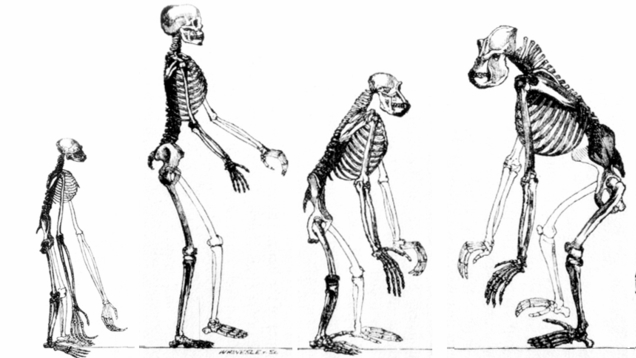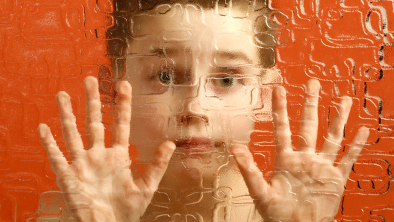Surprising Science
All Stories
For many of the questions Watson got right on Jeopardy!, a naive Google query of the ‘en.wikipedia.org’ domain returned, as the first result, the correct answer.
Technology is eating jobs—and not just obvious ones like toll takers and phone operators. Lawyers and doctors are at risk as well. Is your job an endangered species?
True intimacy would be far more profound if we were all connected to each other by the Internet.
For the past four decades, tension between artificial intelligence and intelligence augmentation—A.I. versus I.A.—has been at the heart of progress in computing science.
Alcohol’s sleepy effects have not gone unnoticed. Those who have had a night out drinking may know that booze can deepen nighttime sleep only to wake you up as the sun is rising.
There are no more evolutionary pressures driving gross human evolution, but that doesn’t mean we won’t be able to genetically re-engineer ourselves in the future.
The next big thing that will rock the Internet: machine to machine (M2M for short) connectivity. It’s machines rather than people connecting to the Internet.
Research on facial recognition suggests meaningful changes occur during early and middle adulthood. Should we rethink what we believe about cognitive development and aging?
How to gauge how sound the academic mainstream in a given field is likely to be, and how justified one would be to dismiss contrarians out of hand.
This week, Watson takes on humans at “Jeopardy!” But how close are we to a computer that thinks? Google’s director of research explains how far we’ve come.
Extra dimensions are old news. The newest mind-bending descriptions of reality dreamed up by the world’s smartest physicists include untold numbers of extra universes.
With Time magazine’s recent cover story on futurist Ray Kurzweil, his theories about the singularity have entered the mainstream. Now hear them straight from the source.
Using very little energy, a 62,000-mile-high space elevators could carry travelers out of earth’s gravity well and up to a spaceship dock. It could be tomorrow morning’s commute.
Great news for chocolate lovers: new research published in Chemistry Central Journal claims that chocolate contains more antioxidants (polyphenols and flavanols) than fruit juice.
Over the last decade, top food and agriculture biotechnology firms and trade associations spent $572 million in campaign contributions and lobbying Congress.
Staphylococcus aureus is a hard bug to kill, but now researchers think they may have found a way to conquer it by blocking its ability to perform a critical task: recycling.
Injections are less painful if you resist the natural impulse to look away, scientists have claimed. People had a higher pain threshold if they looked at the arm or hand being treated.
Without the free competition of ideas, popularly favored paradigms dominate research funding, journal publications, and scientific meetings. Dominant theories become arrogant ideologies.
With AT&T announcing its free mobile to mobile calls to help fend off customers defecting for the iPhone on Verizon’s network, it’s time to recognize that voice is now worthless.
Sex and violence are intertwined in mice. A tiny patch of cells in a male’s brain determines whether it fights or mates—humans are likely to possess a similar circuitry.
Autism science is making great strides, but it may never yield a single cure because autism is likely not one disorder but many.
In a recent study, preference for idea generation was higher among ADHD participants, whereas preference for problem clarification was greater among non-ADHD participants.
Has social psychology become a community that is bound together by liberal values and then blind to any ideas or findings that threaten our sacred values? Yes, says Jonathan Haidt.
After decades of careful observation, scientists have figured out that there are a few things we do better when we’re sleeping than when we’re awake. Dealing with stress is one.
Can a computer be “more human” than a human? The march of technology isn’t just changing how we live, it’s raising new questions about what it means to be human.
Theoretically, there could be people and planets made out of antimatter rather than matter, but where are they?
Physics are nothing but the laws of harmonies on a string, and the universe is a symphony.
Though they may not admit it explicitly, most string theorists have given up on the idea of a Unified Theory of Everything.
Are the revelations promised by string theory’s quest for the “Theory of Everything” leading physics in the wrong direction?
The matriarch of modern cancer genetics doubts her career would be possible today: “I was doing observationally driven research. That’s a kiss of death if you’re looking for funding today.”





